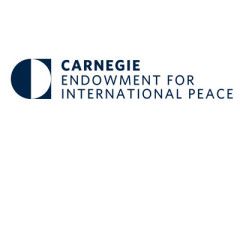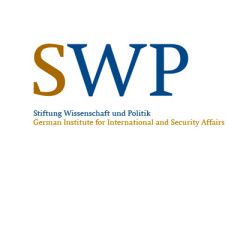Putin’s Long War
Nothing in Putin’s record suggests that he will stop trying to drag Ukraine back into Russia’s sphere of influence. In fact, Putin’s consistent, persistent policy toward Europe and the United States, together with Ukraine’s critical place between Russia and the Western alliance, suggests that he is not about to change...
Türkische Angriffe in Syrien: Warum Ankara mit einer Bodenoffensive droht
Seit der Nacht auf den 20. November greift das türkische Militär kurdische Milizen in Nordsyrien und im Nordirak an – als »Vergeltung” für einen Terroranschlag in Istanbul eine Woche zuvor. Für die Tat macht die türkische Regierung die kurdischen Volksverteidigungseinheiten (YPG) in Syrien verantwortlich, die sie als syrischen Ableger der...
Judy Asks: Are France and Germany Wavering on Russia?
While Paris and Berlin continue to support Ukraine, their mixed signals toward Russia have unnerved some European partners as well as Kyiv. This ambivalence could puncture EU unity. …read more Source:: Carnegie Endowment for International...
Der Angriff auf die Ukraine und die Militarisierung der russischen Außen- und Innenpolitik
In der Entscheidung Moskaus vom 24. Februar 2022, erneut in die Ukraine einzumarschieren, kulminiert der seit 2008 zu beobachtende Trend zur Militarisierung der russischen Außenpolitik. Zugleich legt der Krieg die Schwächen der 2008 gestarteten Streitkräftereform offen. Die hohen Verluste der Armee begrenzen die militärischen...
Why Russia Keeps Insisting That Poland Is Preparing to Partition Ukraine
In the Kremlin’s twisted logic, Ukraine is an artificial construct, and only Russia-as the successor of the country that once granted Ukraine its current borders by seizing land from its neighbors-can now ensure the inviolability of Ukraine’s western territories. …read more Source:: Carnegie Endowment for International...
The Risks of Negotiating An End to the War in Ukraine
Only the combination of military assistance and reconstruction efforts now will one day put Ukraine in the position to decide if and when it wants to negotiate. …read more Source:: Carnegie Endowment for International...
Ukraine Needs a Financial Lifeline, Too
Russia’s invasion shows that the democratic world must develop new instruments for financial support. …read more Source:: Carnegie Endowment for International...
After the Review Conference: The NPT Remains Robust
Originally scheduled for 2020, the 10th Review Conference of the Treaty on the Non-Proliferation of Nuclear Weapons (NPT) had to be deferred four times. It was not until August 2022 that the 191 NPT states finally met. At least since Russia’s invasion of Ukraine, observers had expected that the delegates would be unable to agree on a Final...
Offene strategische Autonomie der EU im Bereich Arzneimittel
Die Covid-19-Pandemie und der Ukrainekrieg haben die Abhängigkeit der Europäischen Union (EU) von einzelnen Handelspartnern deutlich gemacht. Eine der Aufgaben der 2021 von der Kommission neu eingerichteten Generaldirektion für Krisenvorsorge und -reaktion bei gesundheitlichen Notlagen (HERA) soll es daher sein, zur »offenen strategischen...
What Next for Ukraine’s Formerly Pro-Russian Regions?
No matter how the war in Ukraine ends, it’s very difficult to imagine the reemergence of pro-Russian political parties there, leaving a political void in the country’s southeast. …read more Source:: Carnegie Endowment for International...



